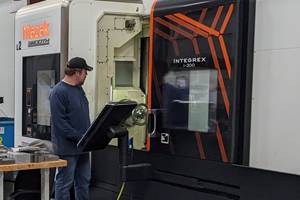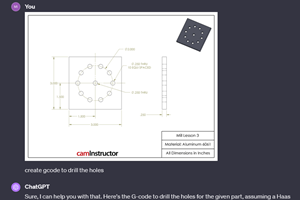MMS Looks Back: 2010s - How Far Will Digital Advances Go?
Shops now linking their capabilities into unified systems are taking the first steps on a journey with no known destination. In media, too, we are asking our own version of this question. This story is part of our 90th anniversary series.
Share





We have been looking back through the years to celebrate nine decades of 91ÊÓƵÍøÕ¾ÎÛ … and now we come to this decade, the 2010s, and the current year, 2018.
It is too soon to know what part of our experience will catch the future’s attention. But one of the features of this decade is the way it began: still reeling from the one preceding it. The Great Recession left shops struggling to return to their previous levels of success, and the 2010s began with many of them still on that upward climb. Then, at a certain point during this decade, a threshold was crossed: Manufacturers regained their previous levels and kept going.
How are shops changing now and where are they headed? This year, we saw a clue. Our January issue, February issue and March issue cover stories all reported on shops making significant investments toward bringing their equipment and capabilities together into unified digital systems. The repetition of this digital theme was not our intent. For our first cover story of the year, for example, we aimed to report on a shop’s success with transitioning to machining from solid as a replacement for relying on casting. But committing to a system of monitoring machine-tool performance and responding to the data proved vital to an approach that is now more reliant on CNC machining.
As for where this development of digital technology will go, I think we can see clues to that in other industries. In retail, for example, a third-party provider might seamlessly fulfill an order placed through Amazon. We are already accustomed to this. If manufacturers’ internal digital integration can naturally extend into external integration as well, we might see shops as nodes within data-sharing supply chains that respond to and fulfill part orders as seamlessly as the integration in retail already shows. A term in 2018 for talking about the promise of shifts such as this is “Industry 4.0.” What currency will that term have in the decades to come?
The advance of digital technology touches our awareness in one other way as well. In media, of course, digital technology has also made advances, meaning we have decisions to make. And in 2018, one of those decisions was the choice to invest in our print magazine. We made its dimensions bigger for only the second time in its history, allowing us to redesign and improve its graphic presentation. I explained this move in a recent post, but the reason amounts to opportunity. Certainly readers can now stay informed digitally and we need to serve them with digital media, yet a publication produced with care remains the most effective resource we have found for reaching the awareness of manufacturing leaders and informing their choices, a resource that—in the current age—is all the more appreciated. Monitoring and responding to a shop’s machining performance data demands a fully digital approach, but conveying ideas and insights about manufacturing technology argues for something more. That is why I am confident we will celebrate our 100th anniversary still serving our audience through various media including a print magazine, and I will look forward to that chance to look back with you once again.
Related Content
5 Tips for Running a Profitable Aerospace Shop
Aerospace machining is a demanding and competitive sector of manufacturing, but this shop demonstrates five ways to find aerospace success.
Read MoreCan ChatGPT Create Usable G-Code Programs?
Since its debut in late 2022, ChatGPT has been used in many situations, from writing stories to writing code, including G-code. But is it useful to shops? We asked a CAM expert for his thoughts.
Read MoreThe Power of Practical Demonstrations and Projects
Practical work has served Bridgerland Technical College both in preparing its current students for manufacturing jobs and in appealing to new generations of potential machinists.
Read More2 Secondary Coordinate Systems You Should Know
Coordinate systems tell a CNC machine where to position the cutting tool during the program’s execution for any purpose that requires the cutting tool to move.
Read MoreRead Next
Last Chance! 2025 Top Shops Benchmarking Survey Still Open Through April 30
Don’t miss out! 91ÊÓƵÍøÕ¾ÎÛ's Top Shops Benchmarking Survey is still open — but not for long. This is your last chance to a receive free, customized benchmarking report that includes actionable feedback across several shopfloor and business metrics.
Read MoreMachine Shop MBA
Making Chips and 91ÊÓƵÍøÕ¾ÎÛ are teaming up for a new podcast series called Machine Shop MBA—designed to help manufacturers measure their success against the industry’s best. Through the lens of the Top Shops benchmarking program, the series explores the KPIs that set high-performing shops apart, from machine utilization and first-pass yield to employee engagement and revenue per employee.
Read MoreAMRs Are Moving Into Manufacturing: 4 Considerations for Implementation
AMRs can provide a flexible, easy-to-use automation platform so long as manufacturers choose a suitable task and prepare their facilities.
Read More























